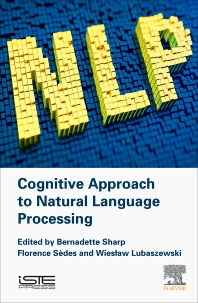Books in Natural language and computational linguistics
Books in Natural language and computational linguistics

Advances in Multimodal Large Language Models for Healthcare
Methods and Applications- 1st Edition
- Hari Mohan Pandey + 4 more
- English

Mastering Prompt Engineering
Deep Insights for Optimizing Large Language Models (LLMs)- 1st Edition
- Anand Nayyar + 2 more
- English

Artificial Intelligence for Healthcare Applications and Management
- 1st Edition
- Boris Galitsky + 1 more
- English

The Natural Language for Artificial Intelligence
- 1st Edition
- Dioneia Motta Monte-Serrat + 1 more
- English

Cognitive Approach to Natural Language Processing
- 1st Edition
- Bernadette Sharp + 2 more
- English

Quotient Space Based Problem Solving
A Theoretical Foundation of Granular Computing- 1st Edition
- Ling Zhang + 1 more
- English

Encyclopedia of Language and Linguistics
- 2nd Edition
- Keith Brown
- English

Spoken Dialogue With Computers
- 1st Edition
- Renato De Mori
- English